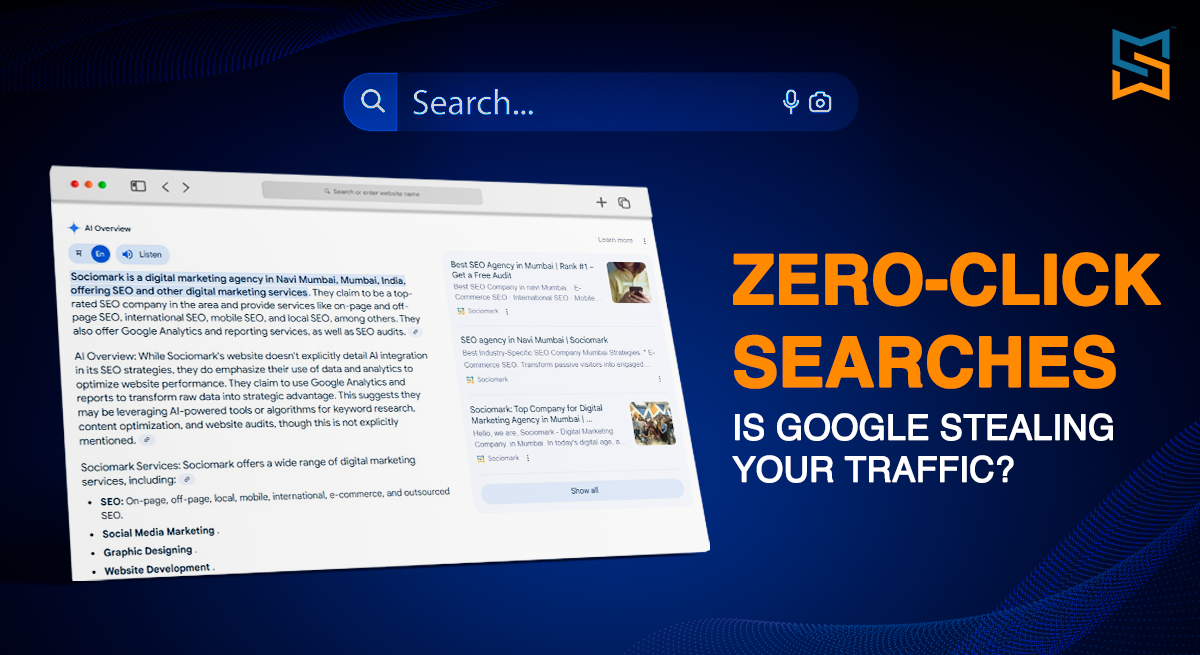

You spend time creating content. You optimize every page. You rank on Google. But when users search, they don’t even click. Instead, they get their answers right on the search results page. No visit to your website. No conversions. Just information taken and displayed by Google.
This is the reality of Zero-Click Searches. The number of searches that don’t get to witness a click is more than half. The reason? Featured snippets, knowledge panels, and instant answers take up prime space. While Google claims this improves user experience, for businesses, it’s a problem. If people find what they need without leaving Google, what happens to your traffic? And more importantly— what can we do?
The transformation of Google from a search engine to an answer engine
Google was once a place where people searched and clicked on websites to get answers. Now, it wants to be the answer itself. If you’ve ever searched for weather updates, quick definitions, or simple facts, you’ve seen this in action. The information appears at the top, removing the need for users to visit any external site. This isn’t just happening for basic searches. Even complex queries related to finance, health, and SEO Strategies are being answered directly on the results page.
For businesses, this means fewer visitors, even if they rank high. Your website could hold the best content, but if Google summarizes it on the search page, users may never reach you. The challenge at hand is to understand and find a way to gain value in a world where clicks are disappearing.
Are Zero-Click Searches Hurting Your Business?
The impact depends on the type of content you create. If your website relies on answering basic questions, you’re at risk. Informational queries like “What is content marketing?” or “How does PPC work?” often get direct answers in search results. This saves users time as they don’t have to click to read more.
However, if your content goes beyond simple definitions, you still have a chance. Google may give users a quick answer, but for deeper insights, they’ll need to visit a full article. Businesses that focus on Content Marketing must shift strategies—moving from surface-level information to in-depth, valuable content that Google can’t summarize in a few lines.
How to Stay Visible and Drive Clicks
If Google is taking away clicks, the goal is to make users want to click anyway. The first step? Optimize your content for engagement, not just rankings. Instead of answering questions too directly, spark curiosity. As a featured snippet your content should be structured in a way that leaves users wanting more.
Another strategy is to target keywords that require detailed explanations. While “What is SEO?” might get a zero-click result, a query like “How to build an SEO Strategy for a new business” encourages users to read further. Focusing on long-tail keywords and in-depth topics increases the chances of actual traffic.
Owning Your Brand Searches
One area where businesses can fight back is branded searches. If someone searches for your company, you don’t want Google answering for you. Optimizing your Online Presence ensures that when users look for your brand, they find your website—not just a summary from Google. Keep your metadata strong, use structured data markup, and ensure your Google Business Profile is accurate and well-maintained.
Google may be changing how search works, but businesses can still adapt. The key is understanding that while some clicks are lost, others can be gained. Shifting focus from generic answers to valuable, detailed insights makes all the difference.
Author: Rishi Vishwakarma (SEO Executive)


